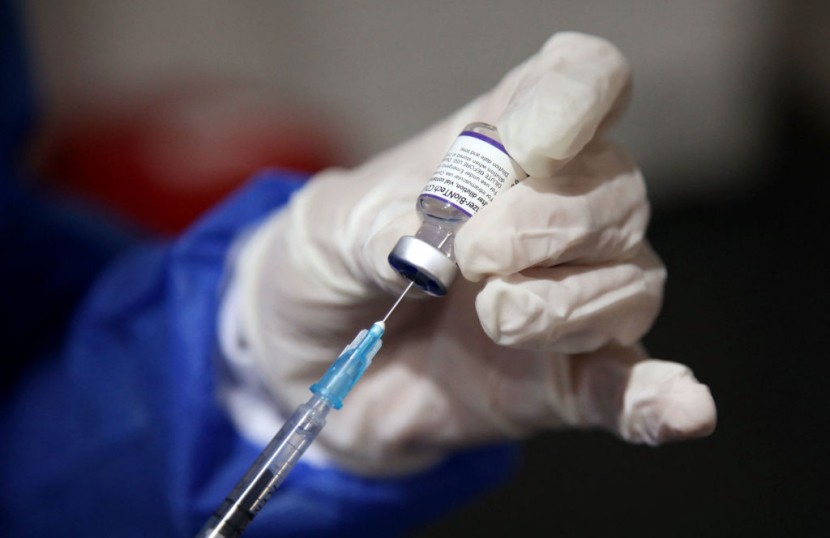
Pfizer and BioNTech have revealed plans to study a coronavirus vaccine that is specially designed to combat the Omicron variant, which is extremely contagious. The vaccine is currently being tested in clinical trials with 1,420 people in three groups.
Those who have not been vaccinated will be given three doses, and those who have had two or three vaccines will be given a booster shot to assess the immunological response created by the Omicron-based vaccine. The experiment will be open to those aged 18 to 55 years old.
Pfizer, BioNTech start trials of Omicron-specific vaccine
Dr. Kathrin Jansen, Pfizer's Senior Vice President and Head of Vaccine Research Development, said it was crucial to give extra protection to individuals worldwide in the battle against the pandemic. Professor Ugur Sahin, a co-founder of BioNTech, said the project would utilize a science-based approach to generate a variant-specific jab that ideally reaches a comparable degree of protection against Omicron.
According to the firms, the new vaccine would give a longer period of protection. A significant degree of protection against Omicron was found in individuals who were doubly dosed, especially enhanced, and were less likely to be hospitalized than those who were not. Even if they were to develop a new vaccine, Pfizer and BioNTech stated they would fulfill the objective of four billion doses in 2022.
If the firms need to switch to the new vaccine, the expected vaccine output would not be hampered. According to the companies, people who have gotten booster doses of the current vaccine to maintain a good level of protection against Omicron, notably against severe sickness and hospitalizations.
Antibodies against the Omicron coronavirus subtype remain strong four months following a third dosage of the Pfizer/BioNTech vaccine, according to a recent preprint lab research, as per Sky News. The initial immunizations are still effective in preventing serious disease and death. The addition of a booster dosage increases that protection and boosts the odds of avoiding a milder infection, according to studies in the United States and abroad.
To evaluate the modified omicron-based injections for use as a booster or main immunizations, a new US trial will enroll up to 1,420 healthy persons aged 18 to 55. In comparison to the original doses, researchers will look at the safety of the altered vaccine and how it boosts the immune system.
As participants receive multiple vaccination doses and researchers monitor how long virus-fighting antibodies persist at high levels following an omicron-adapted dosage versus the standard booster, the whole study results will take many months. In an interview with CNBC earlier this month, Pfizer's CEO said the firm might have some omicron-matched dosages ready by March.
However, the company's "at-risk" production does not guarantee that the dosages would be distributed to the general population. Pfizer and other vaccine companies have also brewed and tested experimental dosages to match prior versions, making adjustments that weren't necessary in the end but gave them significant experience with recipe tinkering.
The new research will provide one or two Omicron-based shots to a group of 600 participants who had received two doses of the existing Pfizer vaccine three to six months earlier. The fourth dosage of either the standard vaccination or the omicron-matched form of the Pfizer vaccine will be given to another 600 people who had already received three ordinary doses, according to HUFFPOST.
Pfizer sees annual COVID-19 vaccine
As the COVID-19 cases have increased, several nations have extended COVID-19 vaccine booster programs or reduced the time between injections as a means of bolstering protection. Bourla was asked if he sees booster injections being delivered on a regular basis every four to five months in an interview.
Pfizer might petition for approval and begin mass production of a modified vaccine to combat Omicron as soon as March, according to Bourla. The Centers for Disease Control and Prevention (CDC) in the United States announced on Friday that the third dosage of an mRNA vaccine, which provides 90 percent protection against hospitalization, is critical in the fight against Omicron.
In preliminary research released on Monday by Israel's Sheba Medical Center, it was discovered that a fourth shot raises antibodies even higher than the third, although it is unlikely to be effective against Omicron. According to Sheba, a second booster was nevertheless recommended for high-risk patients, Business World reported.
Related Article : New Hampshire Boy Battles Rare COVID-19-Linked Syndrome; What Could Be Its Side Effects Among Kids Weeks After Infection?
© 2026 HNGN, All rights reserved. Do not reproduce without permission.








